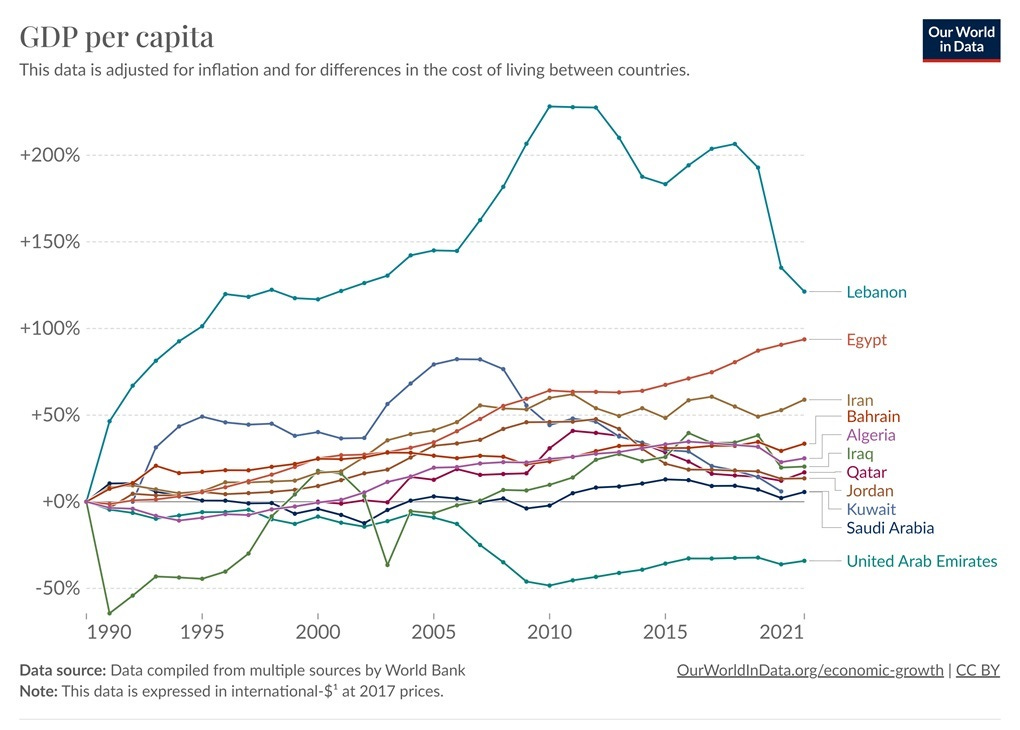8 The Middle East
Smith
There are legitimate fears that the Israel war will lead to the ethnic cleansing of Palestinians — or that in the longer term, Palestinians will ethnically cleanse the Israelis. Such fears are well-founded; mass expulsion and brutalization along ethnic and religious lines has been commonplace in the Middle East for many decades now. Israel itself is largely populated not with the descendants of European refugees from the Holocaust, but by the descendants of Middle Eastern Jews who fled campaigns of violence in Muslim countries in the mid-20th century. Syria’s government was so brutal in part because the ruling Alawite minority fears a genocide if it loses power. The Yazidis were massacred and enslaved by ISIS. Much of the Iraq War was actually just Iraqi Sunni and Shia ethnically cleansing each other from various regions and neighborhoods of the country. Saddam Hussein famously brutalized the Kurds. And so on, and so on.
Why the Middle East has become a land of war is a complex story. The meddling of outside powers like the U.S. and Russia certainly exacerbated things. The curse of oil, which gave some Middle Eastern countries money to fight with without being forced to develop strong institutions, has a lot to do with it. And of course religion is a factor.
Middle East has been trapped in a bad equilibrium for many years now, where rulers live in the lap of luxury while the impoverished masses focus on sectarian conflict and vengeance. Except for Israel and Turkey, the economies of the region are generally stagnant.

Smith (2023) Asia is much more important to U.S. interests than the Middle East